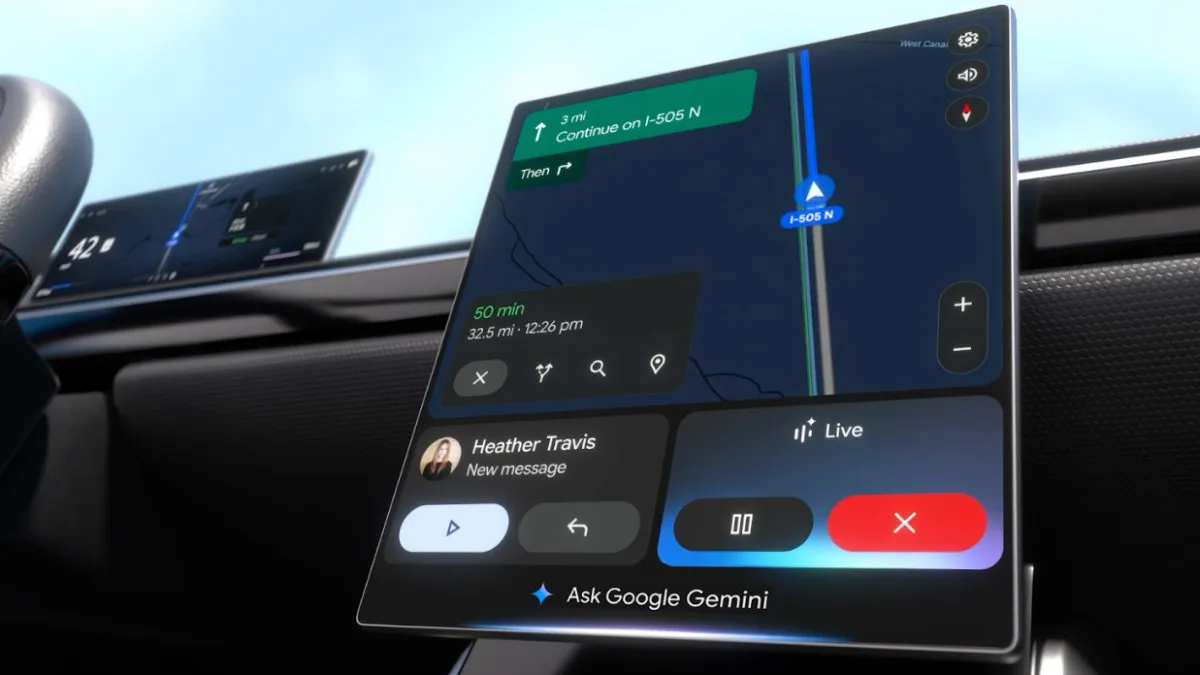
Google has officially announced that its innovative generative AI, Gemini, will be integrated into all vehicles that support Android Auto within the upcoming months. This exciting development was revealed during the company's recent Android Show, just ahead of the much-anticipated 2025 I/O developer conference. Google aims to enhance the driving experience, making it “more productive—and fun,” as highlighted in their blog post. According to Patrick Brady, the VP of Android for Cars, this integration is set to be one of the most significant transformations in the in-vehicle experience in many years.
Gemini will enhance the Android Auto experience in two primary ways. Firstly, it will serve as a more advanced smart voice assistant. Both drivers and passengers can interact with Gemini to send texts, play music, and perform a variety of tasks that the traditional Google Assistant could handle. The key improvement is the natural language processing capabilities of Gemini, allowing users to communicate in a more conversational manner. For instance, Gemini can remember user preferences, such as the language in which a contact prefers to receive messages, effectively managing translations for the user.
Furthermore, Google claims that Gemini will excel in performing popular in-car demonstrations, such as recommending restaurants along a travel route. By tapping into Google’s comprehensive listings and reviews, users can request specific types of dining options, like “taco places with vegan options,” making the driving experience seamlessly integrated with local recommendations.
The second major feature of Gemini is termed “Gemini Live”. This functionality allows the AI to be continuously active, primed for engaging in full conversations on a variety of topics. According to Brady, these discussions could range from planning travel ideas for spring break to brainstorming kid-friendly recipes or even delving into historical topics like “Roman history.” While some may perceive this as potentially distracting, Brady reassures users that the natural language capabilities will simplify task management within Android Auto, thereby reducing cognitive load.
As exciting as these developments are, there are still numerous details to be finalized. Initially, Gemini will rely on Google’s cloud processing capabilities to function within both Android Auto and vehicles equipped with Google Built-In. However, Brady mentioned that Google is collaborating with automakers to integrate more computing power directly into vehicles. This will enable Gemini to operate at the edge, improving both performance and reliability—critical factors for technology in moving vehicles that may frequently switch between cell towers.
Modern vehicles produce immense amounts of data from various onboard sensors, and some models even include advanced interior and exterior cameras. While Brady noted that Google has “nothing to announce” regarding the potential use of this multi-modal data by Gemini, he acknowledged ongoing discussions about its intriguing future applications. "As cars increasingly feature more cameras, we see some truly interesting use cases on the horizon," he stated.
The rollout of Gemini for Android Auto and Google Built-In will be made available in all countries already utilizing the company's generative AI model. Additionally, this advanced AI will support over 40 languages, ensuring a broad and inclusive reach for users worldwide. With these developments, Google is poised to redefine the driving experience, merging cutting-edge technology with everyday functionality.